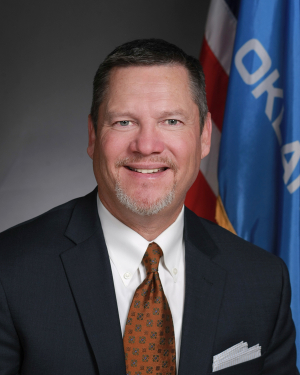The official beginning of the 2023 legislative session is literally just days away – we’ll convene the session at noon on February 6. But the preparation for this session has been ongoing for the past several months, and those efforts only intensify the closer we get to the start of session.
The deadline for filing legislation was January 19, and 1,116 bills were filed in the Senate, along with 18 Senate Joint Resolutions. While 1,116 bills may cause some folks to wonder if we need that many new laws, let me assure you, the vast majority of bills do not make it all the way through the legislative process.
Once a bill is filed, and the Senate Majority Floor Leader assigns the measure to the committee that deals with that area of law, it’s up to the committee chair to decide whether they’ll give that bill a hearing. Sometimes there are several similar bills dealing with the same topic, and only one of them will continue through to the floor. Some bills make it through committee, but for various reasons, the bill may not be heard on the floor. If the author doesn’t haven’t enough support, they may decide to wait until the next year to try again. Or bills may pass through one chamber, but aren’t heard or supported when they cross to the opposite chamber. All of this is part of the system of checks and balances, and by the end session, only about 25 percent of the bills that were filed make it all the way through and get signed into law.
In my last column, I shared my committee assignments for the next two years, including my continuing role as vice chair of the Senate Appropriations Committee and my appointment as chair of a new committee, the Appropriations Subcommittee on OMES/ARPA Oversight, which will oversee the state’s largest agency, the Office of Management and Enterprise Services, and the distribution of nearly $2 billion allocated to the state under the federal American Rescue Plan Act (ARPA). I was also appointed to serve as vice chair of the Senate Agriculture and Rural Affairs Committee.
But starting this session, I will have an additional responsibility during floor sessions of the full Senate. I’ve been asked to be one of a handful of members to serve as a presiding officer of the Senate. The presiding officer basically controls what happens on the Senate floor. They recognize members to speak to present bills, ask questions, or debate. They use their gavel to open and close the session, declare votes, and maintain rules and decorum throughout each session day. As presiding officer, it will be my job to ensure the smooth and efficient flow of work so that the business of the people is done in an orderly way. I’ve had some great experience in preparation for this new role, including chairing committee meetings in the Senate, and as mayor of Perry, presiding over city council meetings.
I’m excited for the opportunities and challenges in the coming session, and again, I thank you for the opportunity to serve you in the Oklahoma Senate.
Please feel free to contact my Capitol office with any questions or concerns you may have about legislation or other issues impacting our state at 405.521.5628 or at Chuck.Hall@oksenate.gov.




Be the first to comment on "Sen. Hall: Preparation for session has been ongoing for months"